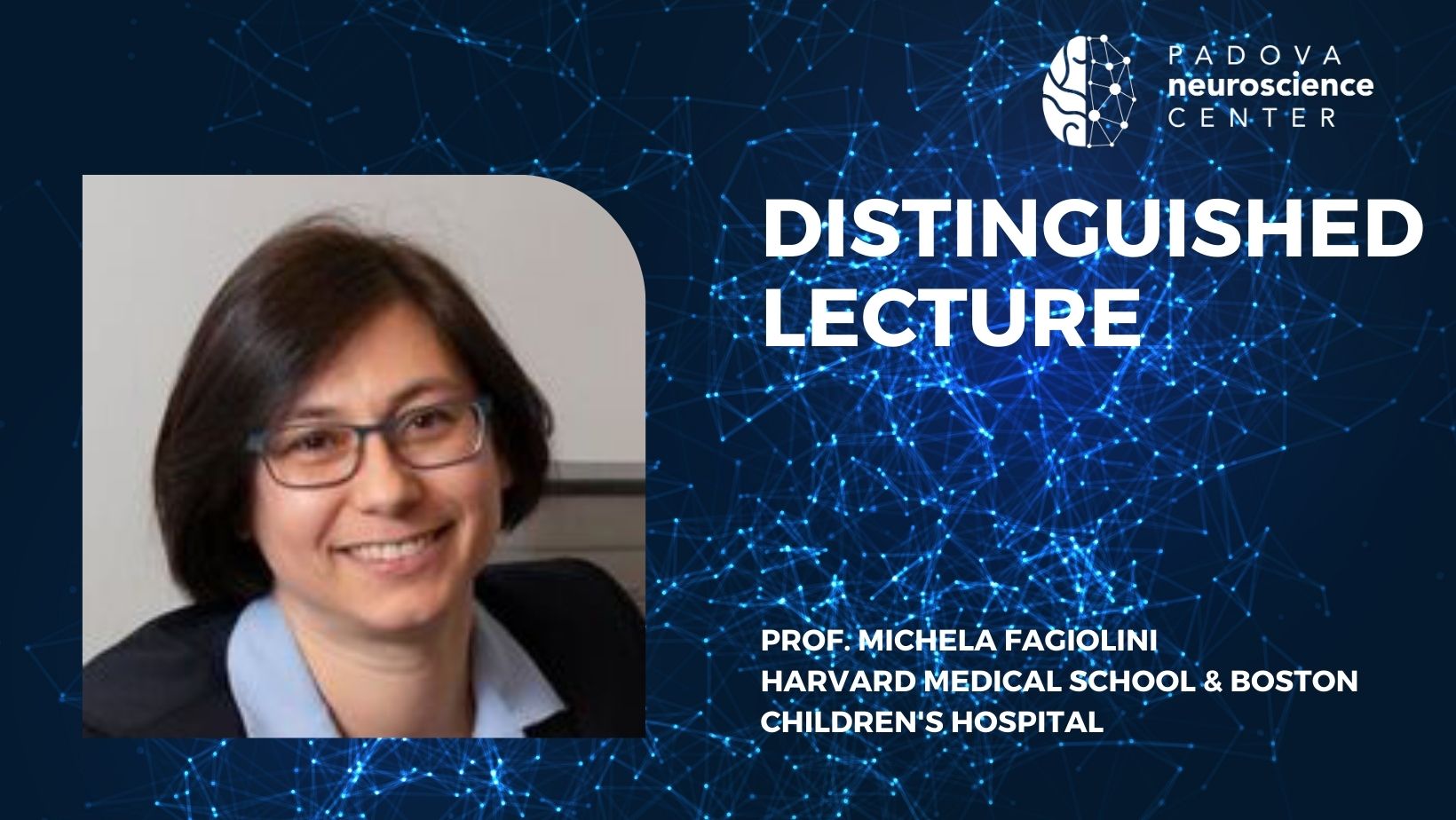by Prof. Michela Fagiolini (Harvard Medical School, Boston Children’s Hospital and Specialty Chief Editor of Frontiers of Neuroscience Neurodevelopment)
When: June 29, 2023, at 3:00 pm
Where: Sala Seminari VIMM (Building A, Ground Floor, Via Orus 2, Padova)
Understanding the mechanisms underlying experience-dependent brain development and refinement in neurodevelopmental disorders can guide the design of effective target therapies. Over the past years, we have discovered a clear visual cortical phenotype in mouse models of Rett Syndrome(RTT), a monogenic neurodevelopmental disorder, and demonstrated its rescue by environmental, genetic, and pharmacological manipulation of the major inhibitory circuits, Parvalbumin-positive cortical circuits. These results reveal a specific role for MECP2 in the experience-dependent refinement of cortical circuits by regulating the excitation of pivotal inhibitory neurons.
In collaboration with the Rett Clinic at BCH, we have assessed the cortical function of the visual system in young girls with RTT and found significant morphological differences between groups, pointing to atypical development of early visual processing inpatients similarly to what found in animal models. These results have paved the way to the identification and validation of visual evoked potentials as quantitative, noninvasive, and highly translational biomarkers for the early detection of developmental disorders. We will present our ongoing preclinical and clinical work investigating the impact of arousal on sensory processing in RTT.


